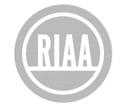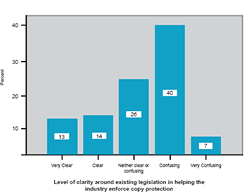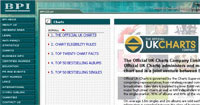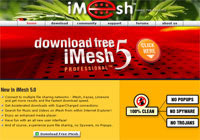 Grokster, the online music sharing service, much legally embattled, has decided to shut the service and pay $50 million to settle claims against it.
Grokster, the online music sharing service, much legally embattled, has decided to shut the service and pay $50 million to settle claims against it.
Visitors to their site will now see the following message
The United States Supreme Court unanimously confirmed that using this service to trade copyrighted material is illegal.
Copying copyrighted motion picture and music files using unauthorized peer-to-peer services is illegal and is prosecuted by copyright owners.
There are legal services for downloading music and movies.
This service is not one of them.
Quite a turn around from their previous stance and not exactly expected.
AP is reporting that the settlement
permanently bans Grokster from participating, directly or indirectly, in the theft of copyrighted files and requires the company to stop giving away its software.
You would think that this would pretty much be the end of them, but no.
 There is a plan to launch a service that they say will be a “safe and legal service” under the name Grokster 3G.
There is a plan to launch a service that they say will be a “safe and legal service” under the name Grokster 3G.
As you would expect with such a massive turn around, the record industry is pretty happy. Mitch Bainwol, Chairman and CEO of the Recording Industry Association of America (RIAA) explained their position, “As the Court articulated in no uncertain terms, there is a right way and a wrong way to conduct a business. This settlement makes clear that businesses are well aware when they are operating on the wrong side of that line.”
The fallout from this sudden turn-around by Grokster is far from clear. They were originally one of the strongest proponents of the right to run a P2P service without restricting the content that is exchanged on it.
![]() Certainly, it will put significantly more pressure on StreamCast Networks Inc., which distributes Morpheus, and Sharman Networks Ltd., which distributes Kazaa, who were co-defendants of the original court case.
Certainly, it will put significantly more pressure on StreamCast Networks Inc., which distributes Morpheus, and Sharman Networks Ltd., which distributes Kazaa, who were co-defendants of the original court case.
What is not certain is if Grokster will be able to pull any of their current users over to their new Grokster 3G service – effectively ‘doing a Napster’. We suspect that it’s highly likely that many of the current Grokster’s will feel betrayed by their change around.
 A Hong Kong doleboy has been slapped down by The Man after he was found guilty of distributing three Hollywood films using BitTorrent’s peer-to-peer file sharing technology.
A Hong Kong doleboy has been slapped down by The Man after he was found guilty of distributing three Hollywood films using BitTorrent’s peer-to-peer file sharing technology. The OpenSource BitTorrent software has become one of the most popular means of downloading large files, with the technology allowing users to download fragments of a large file from multiple users, rather than in one hefty lump.
The OpenSource BitTorrent software has become one of the most popular means of downloading large files, with the technology allowing users to download fragments of a large file from multiple users, rather than in one hefty lump. Macrovision, a company who sell content protection (DRM) system, have today released a report they commissioned into content copying.
Macrovision, a company who sell content protection (DRM) system, have today released a report they commissioned into content copying. This is on the basis of what to us appears, from a quick once over of this report, a pretty unscientific approach, as the following paragraph from page 10 illustrates.
This is on the basis of what to us appears, from a quick once over of this report, a pretty unscientific approach, as the following paragraph from page 10 illustrates. I hope that each time a ‘report’ or so called research like this is published, that it is gone through with a fine tooth comb pointing out its weaknesses. This kind of nonsense needs to be countered.
I hope that each time a ‘report’ or so called research like this is published, that it is gone through with a fine tooth comb pointing out its weaknesses. This kind of nonsense needs to be countered. Listen to
Listen to  Politically, presenting in Tokyo was an important act – delivering this radical message in the home town of Sony’s head office.
Politically, presenting in Tokyo was an important act – delivering this radical message in the home town of Sony’s head office. In the nine months that its been on the market, it’s sold 6m units worldwide, making it, they claim, the most successful portable games machine to date.
In the nine months that its been on the market, it’s sold 6m units worldwide, making it, they claim, the most successful portable games machine to date. In a pretty gung-ho move that shows a lot of seriousness, the US Department of Justice (DoJ) have announced the results of Operation Site Down. More than 20 raids occurred in Australia, Belgium, Canada, Denmark, France, Germany, Israel, the Netherlands, Portugal and the UK, as well as 70 in the USA.
In a pretty gung-ho move that shows a lot of seriousness, the US Department of Justice (DoJ) have announced the results of Operation Site Down. More than 20 raids occurred in Australia, Belgium, Canada, Denmark, France, Germany, Israel, the Netherlands, Portugal and the UK, as well as 70 in the USA. Napster may have a new headache on its hands, with a DRM hack recently surfacing.
Napster may have a new headache on its hands, with a DRM hack recently surfacing. The tool is reported to be unable to circumvent Napster To Go songs using Janus DRM (WMA DRM v10) which is different from the DRM applied to Light and Premium songs.
The tool is reported to be unable to circumvent Napster To Go songs using Janus DRM (WMA DRM v10) which is different from the DRM applied to Light and Premium songs. The BBC has moved a step closer to establishing a ‘public domain of audio-visual material’ with the launch of its ‘Creative Archive’.
The BBC has moved a step closer to establishing a ‘public domain of audio-visual material’ with the launch of its ‘Creative Archive’. In a never-ending quest to stem the flow of illegal file sharing, the UK record companies’ trade association, the BPI (British Phonographic Industry), has announced that is taking legal action against another 33 illegal filesharers in the UK.
In a never-ending quest to stem the flow of illegal file sharing, the UK record companies’ trade association, the BPI (British Phonographic Industry), has announced that is taking legal action against another 33 illegal filesharers in the UK. The BPI ramped up the pressure on March 4 this year, declaring that it intended to pursue proceedings against 31 more illegal filesharers. The offenders were sent details of the BPI’s legal claims against them yesterday after their identities were revealed by their Internet service providers.
The BPI ramped up the pressure on March 4 this year, declaring that it intended to pursue proceedings against 31 more illegal filesharers. The offenders were sent details of the BPI’s legal claims against them yesterday after their identities were revealed by their Internet service providers. All of the accused are alleged to have been indulging in an orgy of uploading involving hundreds or thousands of music files illegally and face civil action for an injunction and damages.
All of the accused are alleged to have been indulging in an orgy of uploading involving hundreds or thousands of music files illegally and face civil action for an injunction and damages. A hard drive, containing confidential data belonging to the Brandenburg police in Germany, was auctioned over eBay and bought by a student from the city of Potsdam for €20 (us$25/£14) according to a report by Spiegel, a leading weekly German newspaper.
A hard drive, containing confidential data belonging to the Brandenburg police in Germany, was auctioned over eBay and bought by a student from the city of Potsdam for €20 (us$25/£14) according to a report by Spiegel, a leading weekly German newspaper. Last year, mobile security specialists Pointsec bought a load of hard drives off Internet auctions like eBay to find out how much sensitive company information they could unearth (and publicise their expertise in the bargain, natch).
Last year, mobile security specialists Pointsec bought a load of hard drives off Internet auctions like eBay to find out how much sensitive company information they could unearth (and publicise their expertise in the bargain, natch). An episode of the new series of the sci-fi drama Doctor Who has been leaked onto the Internet, three weeks before the series is expected to begin on BBC One.
An episode of the new series of the sci-fi drama Doctor Who has been leaked onto the Internet, three weeks before the series is expected to begin on BBC One. The eagerly awaited new series, filmed in Wales, features the well respected actor Christopher Eccleston as Dr Who, with former teen pop singer Billie Piper as his assistant.
The eagerly awaited new series, filmed in Wales, features the well respected actor Christopher Eccleston as Dr Who, with former teen pop singer Billie Piper as his assistant.